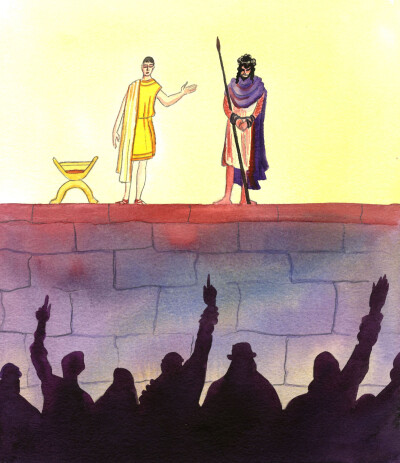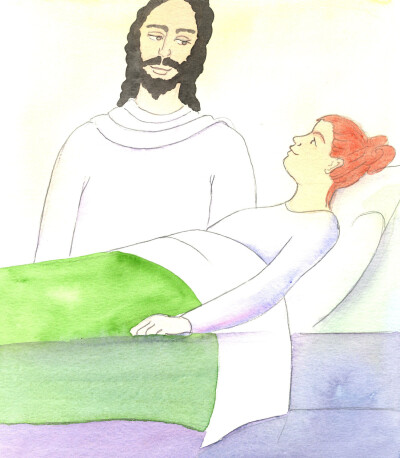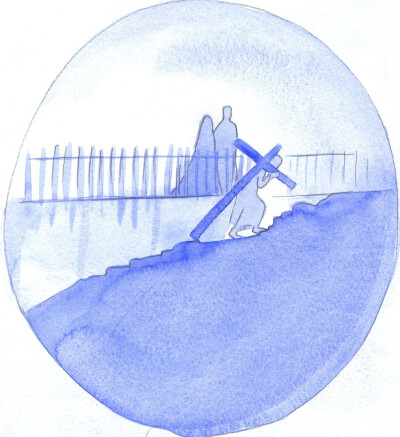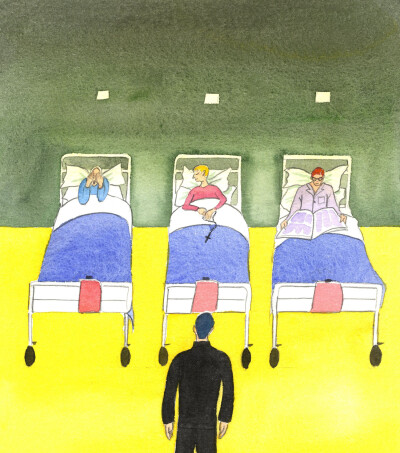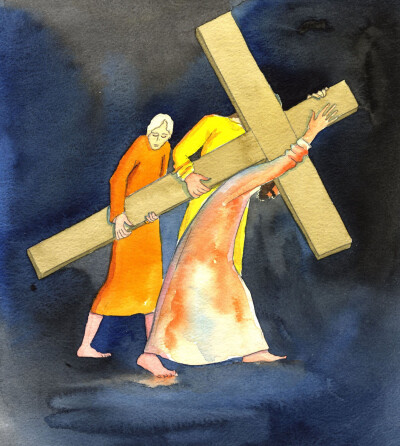Search Page
Showing 41 - 60 of 93
Christ was paraded by His captors before jeering crowds; yet He accepted without hatred or impatience the humiliating treatment he received because of His words. He let nothing stop Him from His mission to show out His Divine nature and to rescue us from our sins. We cannot repay Him for all He suffered to bring truth and salvation to the world; but we give joy to Him when, in gratitude, we show love towards Him and our neighbour.
When God allows us to endure suffering, we must remember that He can bring good out of every evil, including sickness. We please Him if we refrain from complaining when things are painful or inconvenient. By patience we respect the Father's Will and imitate Christ in His obedience.
Even many Catholics grumble and complain when they are asked to bear things which are painful or inconvenient. This shows a lack of understanding, or a lack of love for the Will of the Father, Who invites us to imitate the patience and trust of His Son.
The greatest fall occurs when a person slips from the heights of intimacy with God into the depths of sin. That is what happened to Satan, the rebellious Angel; and that is why we should serve the Lord in humility, simplicity and patience to avoid that fate.
The sick can exercise great spiritual power, with Christ. Those who resolve to be patient and to accept a special vocation can work for God and the Church, in and through their sufferings. By God's grace they can accept without resentment their pains and humiliations, as a penance for themselves and to help save other souls, in union with Christ Who won salvation for us by His patient love, in accepting the Cross.
Sick people have no special right to enter Heaven just because they have suffered much, no matter what sentimental onlookers say. The sick, too, are called to holiness. They need to believe, to think and act with charity, and to persevere, in order to be saved. Yet they have had greater than usual opportunities to do penance, by accepting their sufferings in patience.
In no other way can I fulfil the will of God for me except by following in Christ's footsteps in obedience and patience. But Christ and His mother look with sympathy on us in our sufferings.
The Deposit of Faith is handed on in the Catholic Church from age to age. Some other Christians teach some of the truths which the Church proclaims - but the Church has no need to go to other Christians to learn what she should teach. Her teachings stem from Christ and the Apostles. Yet individual Catholics can learn from the virtuous example of charity, patience, etc. given by other individual Christians.
We must not become disheartened if we struggle to be dutiful and kind towards our relations or companions. In His own earthly life-time, Christ had to be patient with people whose ideas repelled Him, or whose good hearts He admired but whose lack of understanding was hard to bear.
It is true that Jesus healed everyone. But we cannot accuse sick people who fail to improve, after prayer, of having little faith. The Lord permits some people to bear sufferings so that - just like Him, on the Cross - they might do penance for the sins of other people. Others are allowed, by the Lord, a time in which to reflect on their lives and to amend their sinful ways. Others, by patience in sickness, set a good example.
Whenever a person offers up, in union with Christ in His Passion, some painful or distressing experience or state or event, in patience, to help sinners, someone in spiritual danger is saved from falling into Hell. The prayers we offer in Jesus' name are powerful, especially when we do penance for those who refuse to do so.
There is no doubt about it. By uniting ourselves with Christ, in prayer, and in patient acceptance of our sufferings and humiliations, for love of Him, and by our intercessions for people in need, we are saving many from committing mortal sin, or from dying unrepentant and falling into Hell.
When we pray for the living, and for the Holy Souls in Purgatory, we cast our minds over our families and towns, to pray for everyone; and when we do so by accepting our sufferings in patience, as penance for ourselves and for others, we do the powerful work that Christ did on the Cross, as He offered Himself, and prayed to the Father for sinners.
An honourable man is patient and compassionate. A person of honour is one who is kind, steadfast in doing good, with a love of justice and mercy, and a horror of violence, wrong doing and vengeful acts and attitudes. In the house of an honourable man there is no thought of acts of revenge being waged upon people judged to have brought disrepute upon the household.
If we accept unavoidable sufferings with patience, from love for Christ, and offer them as a penance for sinners' conversions, in union with Christ, like Christ, it's as if we help Him to carry His Cross. We give evidence that His Passion was not wasted on us, but that we have accepted His graces and long for salvation for ourselves and others.
Christ really cares about us; and He cares about our attitude to Him. If we picture Christ in Heaven, as He looks down upon the earth, we can understand how much it delights Him, and warms His heart, when He sees someone who really loves Him, loves the Mass, loves the Clergy, loves the Church, and also endures sufferings with patience, by the grace of Christ, and out of love for Christ.
The Lord asks us to deal with some injustices in the manner of Saint Francis, who was reported as saying: if he were to trudge for miles through a snowy landscape, in darkness, and hungry, only to be met with insults, picked up and thrown aside - and yet be able to bear all this with patience, without food and warmth, that would be perfect joy, because then he would have been found worthy to be treated like Christ, and to be able to imitate Him.
It is hard to bear criticism for doing right, or persecution, personal abuse or slander. But if we bear it in patience, with peaceful words and peaceful hearts, we please Christ, Who has power to give us whatever help He wishes. He has power, too, over our persecutors, even when He has given them the freedom to do good or evil.
We help the whole Church by every good thought we have, every good deed we do, every humiliation or pain met with patience not resentment, and every prayer, and every act of humility or reverence; and the Church includes the Holy Souls in Purgatory, many of whom are released into Heaven - by the grace of Christ, because of the good we do.
Christ suggests that when we have to deal with a person who is angry, abusive and unwilling to listen to reason we try to act with pity and charity; but if such a person refuses to be helped, we can picture ourselves as being with Jesus in the boat, as the demoniac once shrieked amongst the nearby tombs. Like Jesus, we should remain calm and patient.
Showing 41 - 60 of 93

